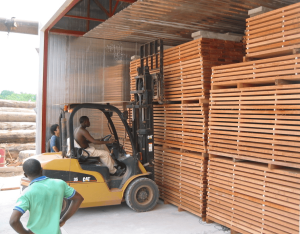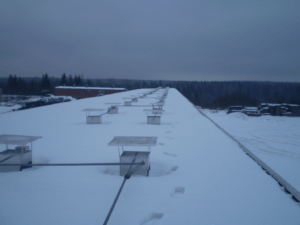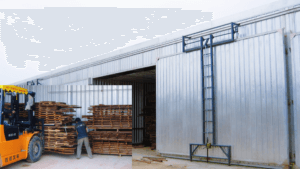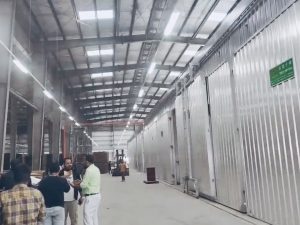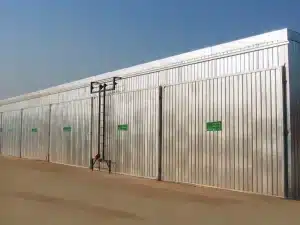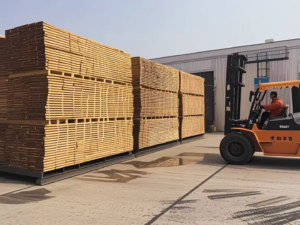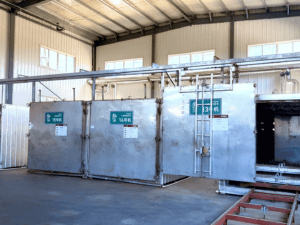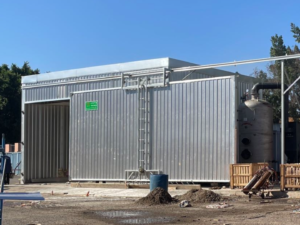Kiln Drying Unlocks Kenya’s Furniture Export Success: Conquer Moisture, Boost Profits
Kiln Drying Brings Stabilized Moisture 8–12% and Unmatched Efficiency
Our Client a leading furniture manufacturer from Kenya, bought tech drying kilns to solve long struggled tropical timber drying issues. Moisture deviation caused 25% EU order rejections and 15% hardwood cracking, while natural drying and slow kiln drying failed to meet 45-day deadlines, limiting peak-season growth.
With Tech Drying kilns:
- Quality Revolution: Moisture stabilized at?8–12%, cutting the cracking rate to under?5%—fully meeting strict EU EN 13631 standards.
- Efficiency Leap: Drying time dropped from?45 days to just?12 days, boosting annual capacity by?200%. This stability opened doors to EU?premium markets, driving?30% revenue growth.
Why Kenyan Factories Choose Tech Drying as Their Kiln Partner
??25+?Years of Expertise: Specialists in African woods-mahogany, acacia,?designed for high-humidity environments—no guesswork, just proven results.
??Global Track Record: Over?3,000 drying kiln installations in 45+ countries, including Kenya, ensuring reliability from day one.
??Affordable Price: Competitive rates, same quality as US-made—accessible to Kenyan manufacturers.
The Three Main Drying Hurdles for Kenyan Furniture Makers
As a key East African exporter, challenges mirror industry norms:
1. Inconsistent Quality from Poor Moisture Control
Traditional kilns allowed?±5% moisture swings, leading to loose joints and peeling paint—25% of high-end EU orders were rejected. Even worse,?15% of dense hardwoods like mahogany developed internal cracks, making them unsuitable for luxury furniture.
2. Glacial Wood Drying Speeds Stifle Growth
Natural drying took 6 months, crippled by the rainy season. Even kilns required 45–60 days, far too slow for?45-day deadlines?demanded by EU and US buyers. Annual output plateaued at?3,000m3, limiting their ability to seize market opportunities.
3. Costly Compliance for Global Standards
Manual record-keeping made FSC? and EUTR certifications a nightmare—6-month processing times?due to missing drying data. Non-compliance risked?25% order rejections?from buyers enforcing strict sustainability rules.
How Tech Drying Kilns Deliver Precision, Speed, and Compliance
Tailored to Kenya’s climate and native woods (mahogany, acacia), Tech Drying’s solutions tackle these issues head-on:
1. Precision Drying for Premium Quality
Their?kiln control systems?customized with?drying schedules for local species, using smart sensors to maintain?±1% moisture accuracy—five times better than traditional kilns. A gradual heating process reduces hidden cracks in hardwoods to just?1.2%, satisfying even Italy’s strictest luxury brands.
2. Faster Drying, Smarter Design
Heat recovery kiln drying system boosts speed by?60%, drying acacia boards?in 12 days. The?50–200m3 kiln chambers?adapt to large-scale production, auto-adjusting settings to eliminate?80% of manual calibration time. Annual capacity surged to?7,500m3, ready for peak seasons like Black Friday.
3. Streamlined Compliance for Export Success
Built-in IoT modules generate real-time drying reports—complete with temperature, humidity, and timing data—meeting FSC? and EUTR requirements automatically. This slashes certification timelines by?50%.
4. From Rejections to Repeat Orders
- Quality Wins: Passed German certification, securing partnerships with Pottery Barn and West Elm. Premium orders now make up?40% of revenue, with a?20% price premium for stable, crack-free furniture.
- Efficiency & Savings: Delivery times dropped from?90 to 40 days, energy costs fell?40%, and wood yield improved to?80%, cutting raw material waste by?25%.

